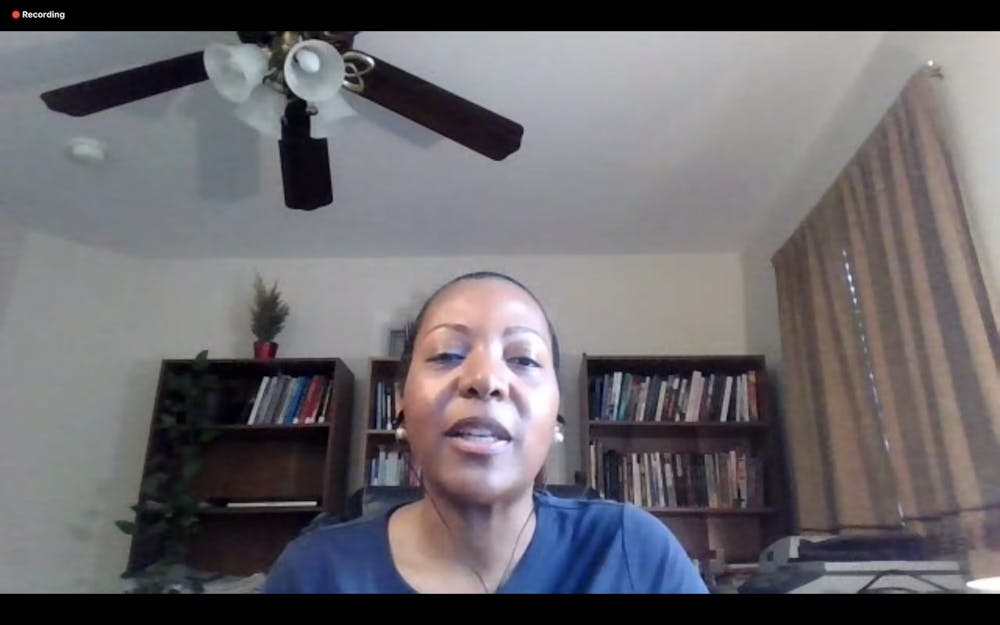As Americans have taken to the streets to protest against racism and police brutality, some UNC faculty members and students are concerned with how to maintain the momentum from the last month of a movement years in the making.
Dawna Jones, chair of the Carolina Black Caucus and assistant dean of students, was one of a series of speakers during a Solidarity and Action Virtual Vigil hosted Monday by UNC’s Undergraduate Senate. Jones and other speakers at the vigil addressed several issues: the pressures and stress experienced by Black individuals and those leading protests, the potential for using art as a form of catharsis, the need for improved mental health support for Black students and faculty at UNC and changes they hope to see on campus.
“It feels like we have been here many times before, and we have to make sure that we find a way to use this moment to the best of our ability to raise our voices and to be heard in service to justice,” Jones said during the vigil. “In the midst of a global pandemic, those who value Black lives have had to take to the streets and to rally, and to riot or whatever you want to call it, in order to show that we value the lives of our people. And that should not be necessary.”
Kia Caldwell, a professor in the Department of African, African American and Diaspora Studies, echoed this sentiment, highlighting UNC’s own history with racial turmoil.
“I think in so many ways our campus has been at the forefront of these issues, and our campus is a microcosm, and that’s why it’s been so intense,” said Caldwell. “Our campus has been a battleground, and I think our leadership and our administration needs to take that into account, that we’ve experienced multiple traumas on our campus for a long time — students, faculty and staff — and so what the nation is experiencing is not anything new to our campus in some ways, but it’s also not new to African Americans.”
The event, which had over 50 attendees on Zoom, began with a five-minute moment of silence for individuals who were killed in incidents of police brutality. Immediately following the vigil, attendees could choose from three breakout sessions to attend on topics such as “Mental Health and Self Care,” “Racism and Police Brutality” and “Where Do We Go From Here?”
Cherish Williams, a staff psychologist for Counseling and Psychological Services, emphasized the importance of taking time for oneself, and said CAPS offers individual therapy sessions and ongoing group support for Black students and students of color, such as the Empowering Black Women program.
However, throughout the vigil and in breakout sessions, attendees posed questions about the hesitation some students of color feel before reaching out for support through CAPS. According to the National Alliance on Mental Illness, around 30 percent of Black adults with mental illness receive treatment annually, versus the U.S. average of 43 percent.
Caldwell said she hopes to also see increased advocacy and options for mental health support available to faculty.




